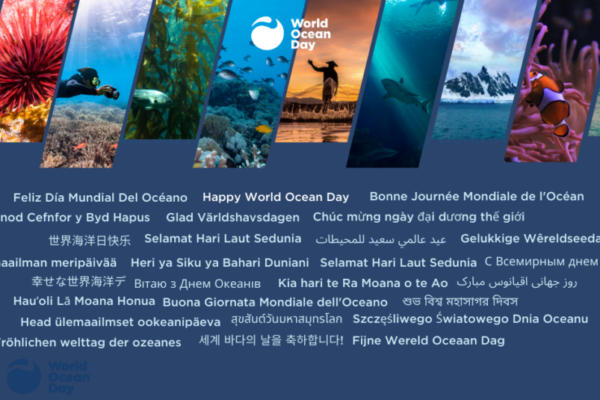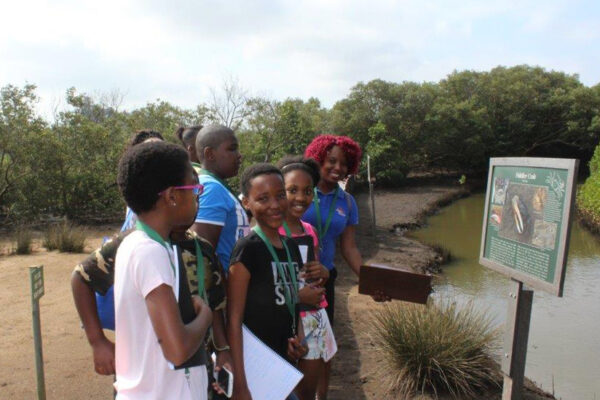Many zoos, aquariums, and museums have been actively engaged for many years on educating and informing their elected officials. Many more could be, and The Ocean Project encourages all to do so, to help advance your conservation mission.
As a reminder, the public opinion research as well as the application of that research in pilot campaigns and engagement initiatives has repeatedly shown that zoos, aquariums and science museums are trusted messengers, and that visitors are not only open to learning about conservation issues, but also expect and appreciate recommendations about how together with you they can help with solutions. Additionally, we’ve seen that policymakers welcome when zoos, aquariums and science museums share not only their issue expertise, but also the perspective of the visiting public, who are, after all, their constituents.
For a refresher on our research we have conducted over the last 20 years to support zoos, aquariums, and museums for conservation engagement and advocacy, check out Looking Back while Planning Ahead: A summary of efforts and opportunities to engage the public and advance conservation, from September 2020. You may like to peruse our blog posts related to effective visitor engagement.
When it comes to connecting with those policymakers, the first and most important fact to convey is that there is no legal prohibition against non-profits (those with 501(c)3 tax status) engaging in these activities, including those defined as lobbying, as long as such activities do not exceed 15% of your annual budget (although this can depend on your overall expenditures – click here for more information and an online calculator to determine your organization’s lobbying limit).
Furthermore, regardless of management structure (e.g., public/private) and tax status (e.g., city-owned) of your zoo, aquarium or museum, the educational engagements you have with public officials about saving species and protecting their habitats, or what you are doing to inform your visitors on those topics, rarely meet the legal definition of lobbying. The legal line for lobbying is crossed when you ask a public official to take a certain action on a specific matter pending before Congress or the executive branch (“direct lobbying”); or ask others to take such actions on a certain action or specific matter (“grassroots lobbying”). For more on direct vs. grassroots lobbying click here.
Understanding these legal distinctions allows us to explore and apply different tactics for engaging audiences and public officials and bring more departments into the process.
Over the years we have increasingly seen that zoo, aquarium, and museum professionals recognize that this kind of work is important and that their organizations should be active on conservation policy issues. At the same time, we fully recognize that there can be institutional reluctance, or barriers that need to be overcome. Let us know how we can help.
We are excited to be growing our involvement with zoos, aquariums and science museums, especially around effective communications for science-based policy and advocacy. For those of you who also have “lessons learned,” we look forward to sharing those with the larger community, through webinars, guest blog posts, conference sessions and articles. For those who want to get more involved, consider participating in an already active campaign on an issue such as accelerating progress towards and/or advocating for “30×30,” ensuring science-based fisheries management, or one of the many around saving threatened and endangered species as part of AZA SAFE.
If you are interested in engaging on another policy area, especially one related to ocean conservation, please reach out. We will work with you to help explore those ideas. Notably, over the last several years we have seen increasing interest across all departments, which is great!
Zoos, aquariums, and museums are uniquely positioned to engage the public, inform policymakers, and advance conservation. We look forward to more closely collaborating with you, demonstrating the value of the community, and achieving significant conservation results and outcomes.
Please contact us if your zoo, aquarium, or museum is interested in participating in either the 30×30 or fisheries campaigns, or another effort to engage the public and advance ocean conservation.
Also, if you would like more information on how you might jump start your organization’s involvement on policy issues, or a refresher on these issues, you may also wish to consult the additional resources listed below (and let us know if you know of other great resources that we should share widely to help the community become even more effective).
- Yes, Nonprofits, You Can Lobby, by Bolder Advocacy
- Guidelines for 501(c)(3) Public Charities, by Bolder Advoacy
- More from Bolder Advocacy, working to enable nonprofits to shape the public debate on important social issues
- Lobbying Guidelines for Public Charities, by Independent Sector
- Tools to Advocate from AAM
- AZA Legislative Education Center




